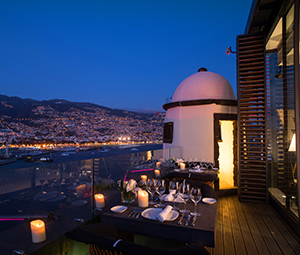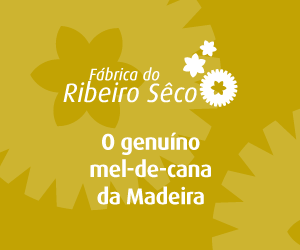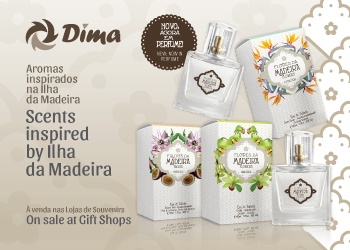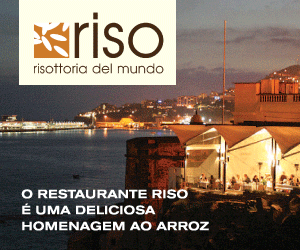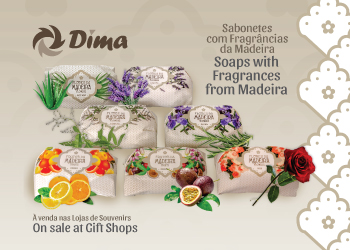One of Portugal’s most renown sommeliers is Madeiran Sérgio Marques, to whom wine is a true passion.

The ritual is repeated every night, as Sérgio Marques leads the parade of glasses down the tables of the Il Gallo D’Oro restaurant, in Funchal, awarded two Michelin stars. With a leather apron and an open smile, he who guides most of clients through the experience of discovering Portuguese wine, with the exception of champagne, which is part of the restaurant’s list, awarded the Wine Spectator’s Best Award of Excellence several times.
‘This is a wine made from old vineyards’, he explains to a customer while displaying a bottle of white wine. Practically, this translates into having a more concentrated wine, an attribute which adds a lot of value to Portuguese wine.
‘Portugal has unique wines! Amazing wines! Very good wines!’, he tells Essential. The country has a long winemaking tradition. It is a territory with several regions with small lots, so there is no shortage of typically Portuguese varieties.
But the past few years have seen the rise of more and more reference wines made from international grape varieties in Portugal, like the Pinot Noir, Cabernet Sauvignon Chardonnay, and others. Sérgio Marques holds that the trend has been stronger but that they are a response to the market because ‘customers wouldn’t be familiar with, say, Touriga Nacional or Tinto Cão’. But, ‘if they read Pinot Noir, the customer will not care whether it is from Portugal or elsewhere’.
It is up to sommeliers to explain the attributes of Portuguese wines to customers. The grape varieties ‘are one of the strengths of our wines’. Because ‘you drink Pinot Noir, Chardonnay, Suavignon Blanc everywhere in the world… in Portugal we drink Tinto Cão, Rabigato, Esgana Cão, unique things that are not found elsewhere’.
Faced with clients’ curiosity, he says the secret is ‘knowing what the customer wants’ because ‘if the customer asks for a Pinot Noir, and I give him a Baga, it is totally different. I have to know what corresponds to a Pinot Noir in Portugal, which in this case could be ‘a wine made from the Bastardo variety’, for example. But, often, restaurants ‘are not prepared’, because they do not always have those wines on their wine lists.
Climate and soil impact the wines of Portugal, as in the World. In Madeira, the volcanic soil confers wine a greater acidity. Here, the production of still wines is not centuries-old, like that of the famous Madeira, a fortified wine. But Sérgio Marques believes that ‘Madeira will be the best region in Portugal for sparkling wines and that we will, and already have amazing white wines, and difficult red wines, but with terroir’. He explains: ‘that is how they are! We are not inventing! We are not going to identify as a Bourgogne wine. That is how it is! It is more acid, and more difficult, but is a Madeiran wine’.
In the case of the Madeira fortified wine the challenge is different; it is do with pairing it with food. ‘Some houses adapted wines to be subtler’, but from the beginning ‘Madeira wine has married well with gastronomy’. ‘I do pairings with pâtés, or with sushi... Sercial pairs wonderfully with sushi, or with oysters. Anything to do with dried fruits will go down well with Madeira wine’. The main difficulty is combining Madeira with ‘red meats’, but ‘white fish, highly acid, bond well with Madeira’.
Food pairing is the proof that the role of wine has evolved, and with it the importance of sommeliers. Madeira has kept up with evolution: ‘I go to restaurants where I am already offered suggestions of wine to pair with the food’. That suggestion may not always be good, but at least ‘now there is a suggestion’, confesses Sérgio Marques. ‘Plus, we have proper glasses, proper temperatures, since wine is seen as a form of gastronomy, a passion, and not as a moneymaking means’.
Customers are more attentive and are more critical, but sometimes ‘without reason’. Sérgio Marques adverts that ‘wine is time’ and that ‘one does not learn wine from one day to the next, one does not simply read one book or do a course and then know everything about wine.
The path that earned him is reputation began with his entry into the world of hotels in 1999. Since the very beginning he has sought ‘to go beyond in this world which back then was somewhat basic!’. Nowadays he speaks with the propriety of someone who has been considered sommelier of the year by the Portuguese Wine magazine and is one of the best-reputed wine professionals in Portugal.
And how does one continue to evolve having reached that summit? ‘We evolve with others, from a certain point’, through the exchange of ideas, because this is an enthralling world, he believes, to the point of ‘us knowing the origin of the wine in that glass’, or feeling a scent that awakens memories, many of them from childhood. Sérgio Marques sums up: ‘It is to have soul! To have terroir!’.


